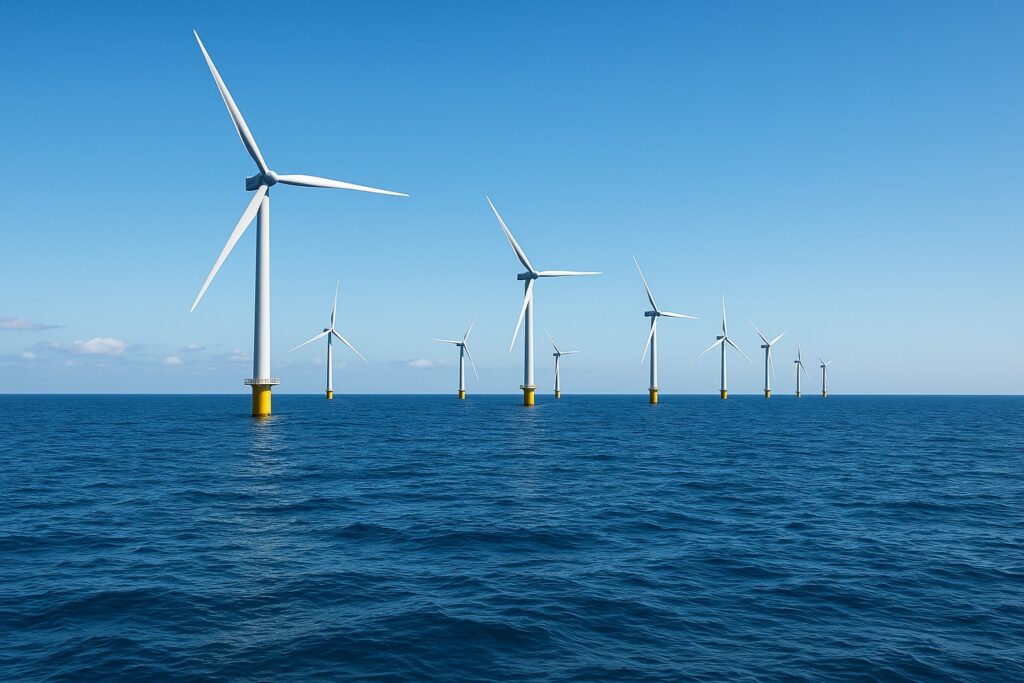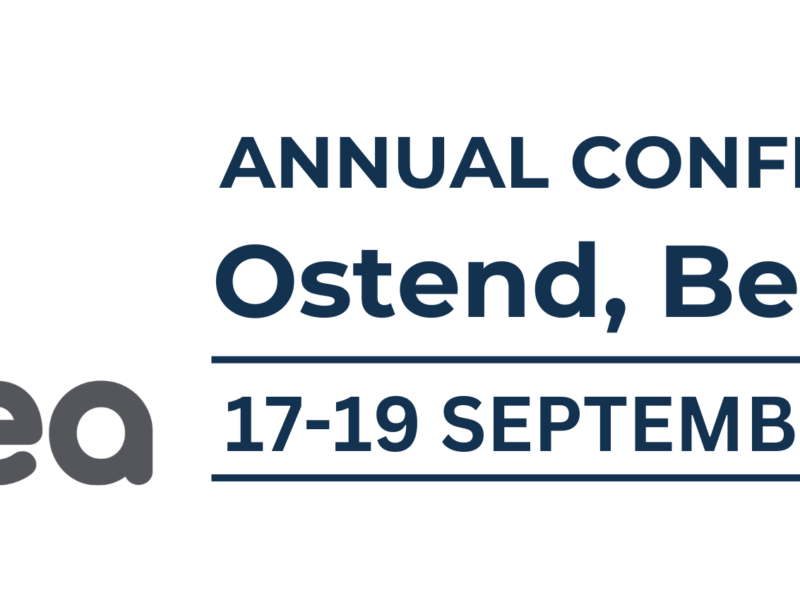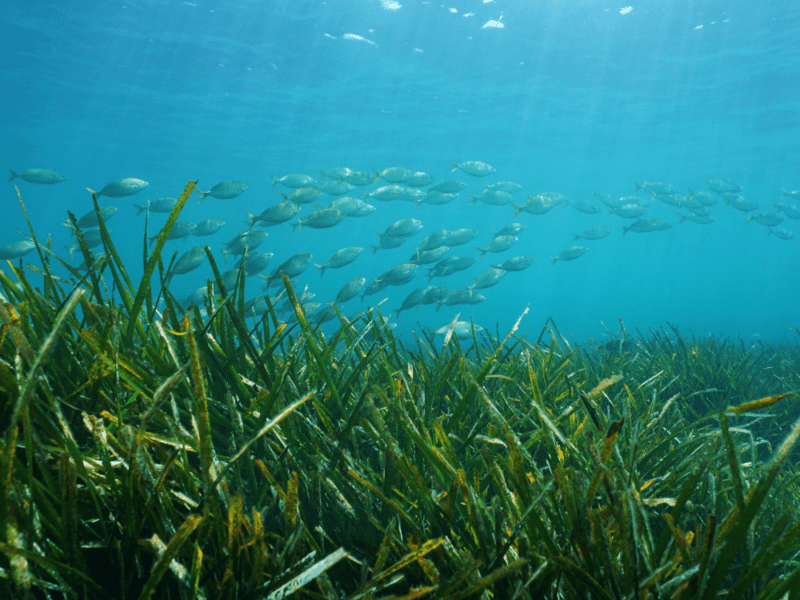
Ocean Economy in Europe’s Atlantic and Arctic: Navigating Toward Powerful Regenerative Blue Futures
Ocean Economy in Europe’s Atlantic and Arctic: Navigating Toward Powerful Regenerative Blue Futures https://pharosproject.eu/wp-content/uploads/2025/09/WhatsApp-Image-2025-09-01-at-13.31.15-1024x683.jpeg 1024 683 PHAROS Project PHAROS Project https://pharosproject.eu/wp-content/uploads/2025/09/WhatsApp-Image-2025-09-01-at-13.31.15-1024x683.jpegThe vast expanse of Europe’s Atlantic and Arctic waters stands at a critical point. These marine regions, which collectively encompass over 27.6 million square kilometers of the EU’s exclusive economic zones, face unprecedented challenges from climate change, pollution, and fragmented governance systems. Yet within these challenges lies an extraordinary opportunity to reimagine our relationship with the ocean, transforming from exploitation to regeneration, from fragmented management to integrated stewardship.
The Current State: A Blue Economy in Transition
Europe’s blue economy has demonstrated remarkable resilience and growth, employing 4.82 million people and generating nearly €890 billion in turnover as of 2022, a 29% increase from the previous year. The Atlantic Maritime Strategy area alone accounts for more than one-third of the EU’s blue economy gross added value. However, this economic success story is shadowed by mounting environmental pressures that threaten the very foundation upon which these industries depend.
The European Environment Agency’s latest assessments reveal a sobering reality: only 37% of Europe’s surface water bodies achieve ‘good’ or ‘high’ ecological status, while a mere 29% meet ‘good’ chemical status standards. In the rapidly changing Arctic, warming occurs at nearly four times the global average, fundamentally altering marine ecosystems and creating new economic opportunities while simultaneously threatening traditional ways of life.
Climate Impacts and Critical Thresholds
The marine waters of the Atlantic and Arctic are experiencing what scientists call “climate change’s deadly trio”: ocean acidification, sea warming, and deoxygenation. Recent research indicates that climate change may account for up to half of the combined impacts on marine ecosystems. The Arctic Ocean, in particular, faces a cascade of interconnected changes: sea ice loss, permafrost thawing, and ecosystem shifts that could trigger irreversible tipping points.
Semi-enclosed seas like the Baltic and parts of the North Atlantic are particularly vulnerable, with shallow coastal areas experiencing disproportionate impacts from rising temperatures and changing ocean chemistry. The European Marine Climate Change Index shows that vulnerability is especially high in parts of the Baltic Sea, the Adriatic Sea, and coastal regions of the North-east Atlantic.
The Governance Challenge: Who Stewards the Ocean Commons?
One of the most pressing questions facing Europe’s marine regions is who owns and governs the vast ocean commons. The Atlantic and Arctic present a complex governance landscape characterized by what experts term “polycentric fragmentation”. The Arctic Ocean governance involves five coastal states (Canada, Denmark via Greenland, Norway, Russia, and the United States), alongside various international bodies and agreements.
Unlike the Antarctic, the Arctic lacks a comprehensive international treaty, instead relying on a complex suite of domestic laws, international treaties, and customary international law. The European Union, while not an Arctic Ocean coastal state, exercises significant influence through flag state, port state, and market state capacities.
The Stewardship Imperative
The concept of ocean stewardship has emerged as a critical framework for addressing governance fragmentation. The 2008 Ilulissat Declaration saw Arctic coastal states claim a stewardship role for the central Arctic Ocean. However, effective stewardship requires moving beyond territorial claims to collaborative, science-based management that recognizes the interconnected nature of marine systems.
The EU’s new Ocean Act, proposed for 2027, aims to strengthen maritime spatial planning as a strategic tool, building on a revision of the Marine Spatial Planning Directive to better organize sea basin approaches and increase cross-sectoral coordination. This represents a significant step toward more integrated ocean governance.
Protect, Reimagine, or Abandon?
Systems That Must Be Protected
Marine Protected Areas (MPAs) are highly important for ocean conservation efforts. The Arctic Council’s Framework for a Pan-Arctic Network of Marine Protected Areas calls for ecologically functional MPA networks that protect the diversity of genes, species, populations, habitats, and ecosystems. Most Arctic states have established some MPAs but remain in early stages of creating connected, functional networks.
The Central Arctic Ocean Fisheries Agreement exemplifies proactive protection, requiring ten parties to abstain from fishing in Arctic high seas until sustainable practices can be established. Similarly, the High Seas Treaty, once ratified by 60 countries, will provide coordinated management for international waters.
Systems That Must Be Reimagined
Traditional blue economy sectors require fundamental transformation to align with climate neutrality and circular economy principles. The EU’s Sustainable Blue Economy Partnership envisions a “just and inclusive transition to a regenerative, resilient, and sustainable blue economy” by 2030.
Aquaculture presents a prime example of necessary reimagining. Integrated Multi-Trophic Aquaculture (IMTA) systems, as demonstrated by the PHAROS project in Ireland and Gran Canaria, show how salmon farming can be combined with macroalgae cultivation to reduce environmental impact while increasing biodiversity and economic returns.
Systems That Must Be Left Behind
Certain practices and approaches prove incompatible with ocean health and must be abandoned. These include:
- Linear economic models that extract, use, and dispose without considering regenerative cycles
- Sectoral silos in governance that ignore ecosystem interconnections
- Short-term profit maximization that depletes marine resources faster than they can regenerate
- Exclusionary decision-making that fails to engage coastal communities and Indigenous peoples
Innovation Driving Ocean Regeneration
Digital Ocean Twins: Virtual Laboratories for Real Solutions
The European Digital Twin of the Ocean (EU DTO) represents a revolutionary approach to marine management. Launched with €15 million annually in EU investment, this AI-powered platform integrates real-time and historical ocean data to simulate “what-if” scenarios. By 2024, the first pre-operational platform demonstrated capabilities ranging from Sargassum drift forecasting to turtle movement simulation.
The EU DTO enables policymakers to model complex scenarios: “What if I reduce pollution in a given river, what would be the impact on the ocean?” These predictive capabilities are already improving ocean current prediction accuracy by more than 20%, setting new benchmarks for marine forecasting while using a fraction of traditional supercomputer energy.
Blue Finance: Catalyzing Sustainable Investment
Financial innovation drives the transformation toward regenerative ocean economies. The European Investment Bank’s Clean Oceans Initiative has mobilized over €2.7 billion for 63 projects addressing plastic pollution and marine degradation. The BlueInvest platform, supported by €500 million in EU funds, is expected to generate €1.5 billion in risk financing for innovative small and medium-sized enterprises contributing to sustainable blue economy.
These financing mechanisms support circular economy solutions, from advanced aquaculture systems to marine renewable energy projects. The EIB’s Blue Sustainable Ocean Strategy demonstrates how targeted investment can accelerate the development of sustainable fisheries, green shipping, and blue biotechnology.
Citizen Science: Democratizing Ocean Knowledge
Citizen science initiatives are transforming how we monitor and understand marine systems. The European Marine Observation and Data Network (EMODnet) now integrates data from diverse sources, including the diving industry through partnerships with Scuba Schools International. Over 1,260 marine citizen science initiatives worldwide contribute to research ranging from biodiversity monitoring to pollution tracking.
The CS-MACH1 project, launched in 2025, aims to build a robust marine citizen science data network, enhancing collaboration and data flow among diverse stakeholders. These initiatives not only expand research capacity but also increase ocean literacy and public engagement in marine conservation.
Circular Economy Solutions: Closing the Loop
The transition to circular blue economy models eliminates waste and maximizes resource efficiency. PHAROS project demonstrations showcase how Integrated Multi-Trophic Aquaculture creates symbiotic relationships between species, with macroalgae absorbing nutrients from fish farming while producing valuable biomass for food, feed, and biotechnology applications.
The EU’s Strategy for Plastics in a Circular Economy specifically targets marine litter reduction, with goals to reduce plastic litter in European waters by 50% by 2030. Projects like REMEDIES develop innovative waste management solutions and support the emergence of “litter entrepreneurs” who transform marine waste into economic opportunities.
The PHAROS Project: Lighthouse for Atlantic-Arctic Innovation
The PHAROS project, funded with €9.5 million and led by the Canary Islands Ocean Platform, is an example of the integrated approach needed for ocean regeneration. Operating from 2024 to 2029, PHAROS bridges the EU Mission’s development phase (by 2025) and deployment phase (2026-2030) through four key demonstrations across Gran Canaria, Ireland, and Iceland.
PHAROS integrates multiple innovative concepts:
- Nature-Based Solutions for ecosystem restoration, including marine forest and reef restoration
- Digital Twin technology creating comprehensive local representations for Gran Canaria and Iceland
- Citizen science programs engaging communities in marine monitoring and conservation
- Circular economy models transforming fishing practices and waste management
The project’s innovative IMTA demonstrations combine polyculture macroalgae with multiple aquaculture infrastructure, fish, and high-value species like abalone and sea cucumber. These systems not only restore degraded marine habitats but also support local economies while demonstrating scalable solutions for the broader Atlantic-Arctic region.
Strategic Pathways Forward
Embracing Regenerative Principles
The transformation toward ocean regeneration requires fundamental shifts in thinking and practice. Rather than simply reducing negative impacts, regenerative approaches actively restore ocean health while supporting human communities. This means moving from extractive to productive relationships with marine systems, where economic activities contribute to ecosystem resilience.
Strengthening Integration
Effective ocean governance demands breaking down sectoral silos and fostering integrated approaches. The proposed EU Ocean Act represents a significant step toward coordinated management, but implementation requires sustained commitment to cross-border cooperation and stakeholder engagement.
Accelerating Innovation
Digital technologies, from AI-powered ocean twins to blockchain-enabled supply chain transparency, offer unprecedented opportunities to monitor, understand, and manage marine systems. However, technological solutions must be coupled with social innovation that engages communities and respects traditional knowledge systems.
Building Resilience
Climate change impacts on marine systems are already irreversible in many cases. Building resilience requires diversifying economic activities, strengthening ecosystem connectivity, and developing adaptive management capabilities that can respond to changing conditions.
Charting a Course to Ocean Regeneration
The state of Europe’s Atlantic and Arctic ocean economy stands at an inflection point. The old paradigm of unlimited extraction from seemingly infinite marine resources has reached its limits. Climate change, pollution, and biodiversity loss demand a new approach, one that recognizes the ocean not as a resource to be exploited but as a living system to be stewarded.
The path forward requires unprecedented collaboration across borders, sectors, and communities. Digital innovations like ocean twins provide the tools for understanding complex marine systems. Blue finance mechanisms mobilize capital for sustainable investments. Citizen science democratizes knowledge creation while building ocean literacy. Circular economy solutions eliminate waste while creating value.
Projects like PHAROS demonstrate that transformation is not only possible but already underway. By 2030, Europe has the opportunity to lead a global transition toward regenerative ocean economies that restore marine health while supporting thriving coastal communities. The choice is clear: we can continue with business as usual and face system collapse, or we can embrace regenerative principles and chart a course toward ocean recovery.
The ocean has sustained life on Earth for billions of years. Now it is time for human activities to sustain the ocean in return. The future of Europe’s maritime regions, and indeed the planet’s marine systems, depends on the choices we make today. The tide is turning toward regeneration; the question is whether we will rise with it.
Several of these topics will be central to the upcoming PHAROS webinar series, which begins with its first session on 25 September.
Webinar “Framing the Challenge: The State of the Ocean Economy“
The “Meet the Oceanpreneur” webinar series, part of PHAROS’ Citizen Litter Entrepreneur program, kicks off on 25 September 2025 through “Framing the Challenge: The State of the Ocean Economy” with a 50-minute session exploring the state of the ocean economy, its challenges, and opportunities for sustainable growth. Through a dynamic fireside chat format, leading experts will introduce concepts such as digital ocean twins, blue finance, citizen science, and circular economy solutions to set the stage for future sessions.
References
- European Commission. (2025, May 21). EU Blue Economy Report 2025. Retrieved September 1, 2025, from https://blue-economy-observatory.ec.europa.eu/news/eu-blue-economy-report-2025-2025-05-22_en
- European Environment Agency. (2025, June 26). Pollution, over-use and climate change threaten water resilience in Europe. Retrieved September 1, 2025, from https://www.eea.europa.eu/en/newsroom/news/state-of-water
- European Environment Agency. (2023, November 29). How climate change impacts marine life. Retrieved September 1, 2025, from https://www.eea.europa.eu/en/analysis/publications/how-climate-change-impacts-marine-life
- European Commission. (2024, June 15). Map of the Week – Citizen science initiatives – EMODnet. Retrieved September 1, 2025, from https://emodnet.ec.europa.eu/en/map-week-citizen-science-initiatives
- European Commission. (2022, April 20). European Digital Twin of the Ocean (European DTO). Retrieved September 1, 2025, from https://research-and-innovation.ec.europa.eu/funding/funding-opportunities/funding-programmes-and-open-calls/horizon-europe/eu-missions-horizon-europe/restore-our-ocean-and-waters/european-digital-twin-ocean-european-dto_en
- Mercator Ocean International. (2025, July 15). Europe Showcases AI-Powered Digital Twin of the Ocean as a Support to the European Ocean Pact at UN Ocean Conference. Retrieved September 1, 2025, from https://www.mercator-ocean.eu/europe-showcases-ai-powered-digital-twin-of-the-ocean-supporting-the-european-ocean-pact-at-un-ocean-conference/
- European Investment Bank. (2023). Clean Oceans and the Blue Economy Overview 2023. Retrieved September 1, 2025, from https://www.eib.org/attachments/lucalli/20220311-clean-oceans-and-the-blue-economy-overview-2023.pdf
- Copernicus Marine Service. (2025, April 27). Safeguarding our Ocean and Climate through European Innovation. Retrieved September 1, 2025, from https://marine.copernicus.eu/news/safeguarding-our-ocean-and-climate-through-european-innovation
- Arctic Council. (2022, April 24). Ocean stewardship: Moving from words to action in the central Arctic Ocean. Retrieved September 1, 2025, from https://www.arcticwwf.org/the-circle/stories/ocean-stewardship-moving-from-words-to-action-in-the-central-arctic-ocean/
- Arctic Council. (2024, December 31). About Arctic MPAs – PAME. Retrieved September 1, 2025, from https://pame.is/ourwork/marine-protected-areas-mpa/mpa-network-toolbox/
- European Commission. (2025, June 5). EU Action to protect and sustainably manage the maritime environment (COM(2025) 281 final). Retrieved September 1, 2025, from https://eur-lex.europa.eu/legal-content/EN/TXT/PDF/?uri=COM%3A2025%3A281%3AFIN
- European Maritime-Fisheries and Aquaculture Fund. (2025). Call fiche EMFAF-2025. Retrieved September 1, 2025, from https://www.euro-access.eu/_media/file/626_call-fiche_emfaf-2025-pia-flagship_en.pdf
- JPI Oceans. (2023, July 31). Sustainable Blue Economy Partnership. Retrieved September 1, 2025, from https://www.jpi-oceans.eu/en/sustainable-blue-economy-partnership
- European Commission. (2024). Supporting the Atlantic Action Plan – Implementation Report 2024. Retrieved September 1, 2025, from https://atlantic-maritime-strategy.ec.europa.eu/system/files/documents/media/Implementation_Report_2024.pdf
- WWF Arctic. (2025, June 22). Governance. Retrieved September 1, 2025, from https://www.arcticwwf.org/our-priorities/governance/
- Cambridge University Press. (2023). Coordinated Ocean Stewardship in the Arctic: Needs, Challenges and Possible Models for an Arctic Ocean Coordinating Agreement. Retrieved September 1, 2025, from https://www.cambridge.org/core/journals/transnational-environmental-law/article/coordinated-ocean-stewardship-in-the-arctic-needs-challenges-and-possible-models-for-an-arctic-ocean-coordinating-agreement/2B1917B2D72823EBC27CC63EB8357783
- FRONTIERS in Marine Science. (2021, March 23). Marine Citizen Science: Current State in Europe and New Perspectives. Retrieved September 1, 2025, from https://www.frontiersin.org/journals/marine-science/articles/10.3389/fmars.2021.621472/full
- Nature Center. (2023, October 8). Digital twins: a stepping stone to achieve ocean sustainability? Retrieved September 1, 2025, from https://www.nature.com/articles/s44183-023-00023-9
- Nature Reviews Earth & Environment. (2022, April 4). Plastic pollution in the Arctic. Retrieved September 1, 2025, from https://www.nature.com/articles/s43017-022-00279-8
- BioProtect Project. (2024, September 23). Advancing area-based management tools to accelerate the protection and restoration of marine biodiversity across the European sea basins. Retrieved September 1, 2025, from https://www.aircentre.org/projects/bioprotect-advancing-area-based-management-tools-to-accelerate-the-protection-and-restoration-of-marine-biodiversity-across-the-european-sea-basins/
- Cordis. (2024, May 19). Lighthouse for Atlantic and Arctic Basin – PHAROS (Lighthouse for the Atlantic and Arctic Basin, Project ID 101157936). Retrieved September 1, 2025, from https://cordis.europa.eu/project/id/101157936
- Center for Ocean and Society. (2021, December 31). Blueprint for Atlantic-Arctic Agora – Center for Ocean and Society. Retrieved September 1, 2025, from https://oceanandsociety.org/en/projects/blueprint-for-atlantic-arctic-agora
- CORDIS. (2023, January 12). Blueprint for Atlantic-Arctic Agora on cross-sectoral cooperation for ocean governance. Retrieved September 1, 2025, from https://cordis.europa.eu/project/id/101093956
- European Commission. (2025, May 30). Horizon Mission Projects. Retrieved September 1, 2025, from https://projects.research-and-innovation.ec.europa.eu/en/funding/funding-opportunities/funding-programmes-and-open-calls/horizon-europe/eu-missions-horizon-europe/restore-our-ocean-and-waters/horizon-mission-projects
- WIN_BIG. (2025, August 31). EU Blue Economy Report 2025: a strong growth trajectory. Retrieved September 1, 2025, from https://winbigproject.eu/news/39/eu-blue-economy-report-2025-a-strong-growth-trajectory
- European Commission. (2025, July 3). EU Mission: Restore our Ocean and Waters. Retrieved September 1, 2025, from https://research-and-innovation.ec.europa.eu/funding/funding-opportunities/funding-programmes-and-open-calls/horizon-europe/eu-missions-horizon-europe/restore-our-ocean-and-waters_en
- Seas at Risk. (2025, February 5). The ocean must not be the loser in the EU’s competitiveness race. Retrieved September 1, 2025, from https://seas-at-risk.org/press-releases/the-ocean-must-not-be-the-loser-in-the-eus-competitiveness-race/
- Ecologic Institute. (2022). The Arctic Blue Economy. Retrieved September 1, 2025, from https://www.ecologic.eu/sites/default/files/publication/2022/50002-Arctic-Blue-Economy-web.pdf
- JPI Oceans. (2023). Addressing the fragmentation of Ocean Governance across borders. Retrieved September 1, 2025, from https://www.emspproject.eu/wp-content/uploads/2024/01/Ocean-Governance-Policy-Brief-eMSP-NBSR-January-2024.pdf
- Puri, S. (2025, July 20). A toolbox for public authorities to address marine plastics and litter from river to ocean. Retrieved September 1, 2025, from https://www.euro-access.eu/en/calls/2138/A-toolbox-for-public-authorities-to-address-marine-plastics-and-litter-from-river-to-ocean
- Marine Board. (2024). Review of Ocean Literacy in European Maritime Policy. Retrieved September 1, 2025, from https://www.marineboard.eu/sites/marineboard.eu/files/public/publication/D5.1Review_of_Ocean_Literacy_in_Governance.pdf
- European Commission. (2023, July 31). Sustainable Blue Economy Partnership – Strategic Research and Innovation Agenda 2024. Retrieved September 1, 2025, from https://bluepartnership.eu/sites/bluepartnership.eu/files/documents/2024-12/sustainable_blue_economy_partnership_strategic_research_and_innovation_agenda_2024.pdf
- Maritime Forum. (2025, July 31). Map of the Week – Citizen science initiatives – Maritime Forum. Retrieved September 1, 2025, from https://maritime-forum.ec.europa.eu/map-week-citizen-science-initiatives_en
- European Maritime Forum. (2024, September 24). PHAROS: Lighthouse for Atlantic and Arctic Basin. Retrieved September 1, 2025, from https://maritime-forum.ec.europa.eu/node/7693_en
- Blue Mission Atlantic & Arctic. (2018, June 5). BlueMissionBANOS Project – Blue Mission Atlantic & Arctic. Retrieved September 1, 2025, from https://bluemissionaa.eu/bluemissionbanos-project-blue-mission-atlantic-arctic/
- Marine Board. (2020). Advancing Citizen Science for Coastal and Ocean Research. Retrieved September 1, 2025, from http://www.marineboard.eu/sites/marineboard.eu/files/public/publication/EMB_PP23__Citizen_Science_web.pdf
- Nature. (2024, March 13). Biodiversity in European seas threatened by global warming. Retrieved September 1, 2025, from https://oceanographicmagazine.com/news/biodiversity-in-european-seas-threatened-by-global-warming/
- Nature Reviews Earth & Environment. (2025, August 31). Effects of global climate change on European marine biodiversity. Retrieved September 1, 2025, from https://www.coastalwiki.org/wiki/Effects_of_global_climate_change_on_European_marine_biodiversity
- Nature. (2024, May 28). Tipping point study finds world’s oceans face irreversible damage. Retrieved September 1, 2025, from https://news-oceanacidification-icc.org/2024/05/28/tipping-point-study-finds-worlds-oceans-face-irreversible-damage/
- BioProtect Project. (2024, July 29). EU-Funded BioProtect Initiative Launches to Restore & Protect Marine Biodiversity in the Atlantic & Arctic Oceans. Retrieved September 1, 2025, from https://bioprotect-project.eu/eu-funded-bioprotect-initiative-launches-to-restore-protect-marine-biodiversity-in-the-atlantic-arctic-oceans/
- CORDIS. (2023, December 27). Research project urges immediate action to save oceans. Retrieved September 1, 2025, from https://cordis.europa.eu/article/id/448417-research-project-urges-immediate-action-to-save-oceans
- Ocean Panel. (2022, May). The Ocean Transition – What to Learn from System Transitions. Retrieved September 1, 2025, from https://oceanpanel.org/wp-content/uploads/2022/05/The-Ocean-Transition-What-to-Learn-from-System-Transitions.pdf
- SDGs Knowledge Hub. (2025, May 14). Giving impetus to a sustainable, resilient and competitive blue economy in EU Member States. Retrieved September 1, 2025, from https://sdgs.un.org/partnership-progress/giving-impetus-sustainable-resilient-and-competitive-blue-economy-eu-member
- Posted In:
- BLOG

